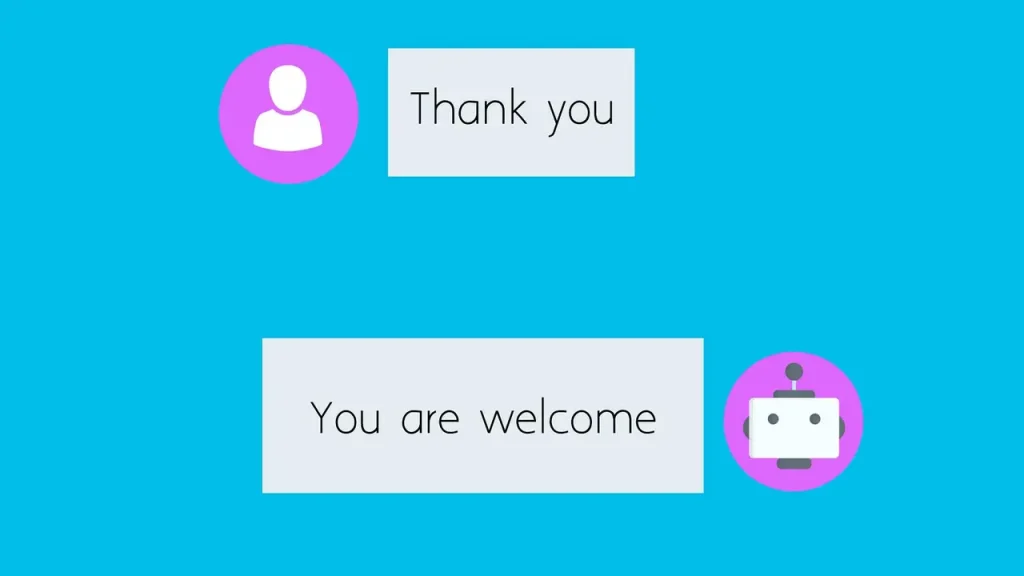
Impact of AI on customer service Explained
I remember it vividly. Stuck on hold for 47 minutes, listening to a looped, distorted version of a pop song, just to ask a simple question about a billing error. The frustration was immense. It felt like my time was completely worthless. Fast forward to last week. I had an issue with a delivery, typed my question into a website’s chat window at 11 PM, and a bot sorted it out in less than two minutes. No hold music, no waiting, just a solution. That stark contrast, that feeling of instant relief, is the core of the modern impact of AI on customer service. It’s a revolution happening not in a distant future, but right now, changing everything we thought we knew about getting help. And honestly? It’s about time. We are seeing a massive shift, and understanding the full impact of AI on customer service is crucial for any business that wants to survive.
The Transformative Power of AI in Customer Service
So what are we really talking about here? It’s not just about simple chatbots anymore. The landscape has matured, and the technology is now deeply woven into the fabric of customer interactions, creating a seamless and often invisible support system.
What is AI-Powered Customer Service?
AI-powered customer service is the application of artificial intelligence, machine learning, and natural language processing to handle, augment, and improve how companies interact with their customers. Think of it as a spectrum. On one end, you have automated email responses and FAQ bots. On the other, you have sophisticated systems that can analyze a customer’s tone of voice to detect frustration and route them to a specialized human agent. This technology is the driving force behind the significant impact of AI on customer service, moving beyond simple automation to intelligent assistance. It’s a game-changer. The benefits of artificial intelligence in customer service are becoming too large to ignore.
Evolution of Customer Interactions
We’ve come a long way. The journey started with manual phone calls and letters. Then came call centers, often outsourced, leading to those infamous long wait times and scripted, impersonal conversations. Email support was a step up, but response times could still be painfully slow. The real evolution began with digital transformation. Now, AI is at the forefront, powering instant chat, intelligent virtual assistants, and proactive support. This shift shows how machine learning transforms customer interactions from reactive problem-solving to proactive relationship-building. The modern consumer expects instant gratification, and the impact of AI on customer service is what makes that possible, completely altering customer expectations for the better.
Key Ways AI is Reshaping Customer Support
The changes aren’t just superficial. AI is fundamentally altering the mechanics of support, creating efficiencies and capabilities that were once pure science fiction. This is where the true impact of AI on customer service becomes tangible, both for businesses and the people they serve.
Automation of Routine Tasks
Let’s be honest, nobody enjoys answering the same five questions a hundred times a day. One of the most immediate ways we see the impact of AI on customer service is through the automation of these mundane, repetitive tasks. Password resets, order status inquiries, updating contact information—these are perfect jobs for a machine. This is where you see some of the best AI tools for customer support automation really shine. They handle the high-volume, low-complexity queries, freeing up human agents to focus on the messy, nuanced problems that require empathy and critical thinking. This single change massively influences how AI improves customer support efficiency.
Personalization at Scale
This is where things get really interesting. True personalization used to be the exclusive domain of small businesses where the owner knew every customer by name. Big corporations just couldn’t replicate it. Until now. AI can analyze a customer’s entire history—past purchases, previous support tickets, browsing behavior—to provide a tailored experience. A great example of AI-driven personalization strategies for customers is an e-commerce bot that doesn’t just ask “How can I help?” but says, “I see your last order of running shoes hasn’t shipped yet, are you contacting us about that?” This proactive and informed approach makes customers feel seen and valued, demonstrating a positive impact of AI on customer service.
Predictive Analytics for Proactive Service
The future of support isn’t waiting for customers to complain; it’s about solving problems before they even happen. Predictive analytics is a cornerstone of this shift. AI algorithms can identify patterns that signal a potential issue. For instance, an AI might detect that a batch of products is generating a higher-than-average number of support queries and proactively send an email to all buyers with a troubleshooting guide. This highlights the crucial role of predictive analytics in customer service AI. It flips the service model from reactive to proactive, which can dramatically boost customer sentiment. This capability is central to the evolving impact of AI on customer service.
Enhancing Agent Efficiency
There’s a common fear that AI will replace human agents entirely. Not so fast. In reality, AI is becoming the ultimate sidekick for support staff. Imagine an agent on a call with a frustrated customer. An AI tool can listen in, analyze the problem, and pull up relevant knowledge base articles, customer history, and potential solutions on the agent’s screen in real-time. This is a clear example of the impact of AI on call center agents. It empowers them to be faster, more accurate, and more confident. Instead of replacing them, AI augments their abilities, leading to a far better outcome. This synergy is a powerful facet of the overall impact of AI on customer service.
Tangible Benefits for Businesses and Customers
The ripple effects of this technological shift are widespread, creating a win-win scenario. Businesses operate more smoothly and save money, while customers get the fast, effective service they crave. It’s a powerful combination.
Boosting Operational Efficiency and Cost Savings
The business case is compelling. By automating tasks and enhancing agent productivity, AI directly slashes operational costs. Fewer agents are needed for basic queries, and the ones you have can resolve complex issues faster. The impact of AI on customer service here is crystal clear on the bottom line. It’s one of the most celebrated benefits of artificial intelligence in customer service. Reduced call times, higher first-contact resolution rates, and optimized workflows all contribute to significant savings.
Improving Customer Satisfaction and Loyalty
What is the impact of AI on customer satisfaction? It’s overwhelmingly positive when implemented correctly. Faster resolutions, 24/7 availability, and personalized interactions lead to happier customers. When people feel their problems are solved quickly and without hassle, they are far more likely to remain loyal to a brand. AI helps eliminate the common frustrations that drive customers away. A single positive, AI-driven experience can be enough to secure a customer for life, showcasing a vital impact of AI on customer service.
24/7 Availability and Instant Responses
The world operates around the clock, and customer issues don’t stick to a 9-to-5 schedule. A key benefit is providing AI for 24/7 customer support availability. Whether it’s a customer halfway around the world or a night owl with a sudden question, an AI chatbot or virtual assistant is always there. This instant accessibility is now an expectation, not a luxury. Waiting a day for an email response feels archaic. The ability to provide immediate answers at any hour is a transformative impact of AI on customer service and a major factor in how AI chatbots enhance customer experience.
Data-Driven Insights for Better Decision Making
Every customer interaction is a data point. AI can analyze thousands of conversations, emails, and chat logs to identify trends, product flaws, and recurring pain points that would be invisible to human analysts. This intelligence is invaluable. It can inform product development, marketing strategies, and operational improvements. This analytical power is a less-obvious but profound impact of AI on customer service, turning the support center from a cost center into a source of strategic business intelligence.
Navigating the Challenges of AI Implementation
Of course, it’s not all seamless perfection. Adopting AI is a major undertaking, fraught with technical, ethical, and human challenges that must be navigated carefully for a successful outcome. Ignoring these can lead to disastrous results.
Addressing Data Privacy and Security Concerns
To personalize service, AI needs data. A lot of it. This immediately raises red flags for privacy. Customers are rightfully concerned about how their information is being used, stored, and protected. One of the biggest challenges of implementing AI in customer service is building and maintaining trust. Companies must be transparent about how AI handles customer data privacy and invest heavily in security to prevent breaches. A single misstep here can destroy a brand’s reputation, nullifying any positive impact of AI on customer service.
Maintaining the Human Touch
We’ve all been there. Trapped in a chatbot loop, unable to reach a human, getting more and more furious with each canned response. It’s the absolute worst. While AI is great for simple issues, it often lacks the empathy, creativity, and common sense needed for complex or emotionally charged situations. A critical challenge is designing systems that can seamlessly escalate to a human agent when needed. The goal isn’t to eliminate humans but to use them more effectively. The pros and cons of AI in customer service must be weighed, and preserving the human element is non-negotiable for a truly great experience. A failure here can negate the entire impact of AI on customer service.
Integration Complexities and Training Needs
You can’t just buy an AI tool and flip a switch. It needs to be integrated with existing systems like CRMs, e-commerce platforms, and internal databases. This can be a technical nightmare, especially for older, legacy systems. Furthermore, your team needs to adapt. The process of training customer service agents with AI is crucial. They need to learn how to work alongside these new tools, interpret their outputs, and take over when the AI reaches its limits. Overlooking these implementation hurdles is a common reason why the expected impact of AI on customer service fails to materialize.
The Future Landscape: AI Innovations on the Horizon
If you think today’s AI is impressive, just wait. The technology is evolving at an exponential rate, and the innovations on the horizon promise to make today’s solutions look primitive. The future of AI in customer service industry is incredibly exciting.
Advanced Conversational AI and Emotional Intelligence
The next generation of AI will be able to understand not just what you say, but how you say it. Sentiment analysis will allow AI to detect frustration, sarcasm, or delight from the text or tone of a customer’s voice. This will enable more empathetic and appropriate responses, making interactions feel far more human and natural. This advancement will deepen the positive impact of AI on customer service.
Hyper-Personalization and Proactive Resolution
We will move beyond basic personalization to hyper-personalization, where the AI anticipates your needs before you’re even aware of them. Imagine an AI for a travel company noticing you’ve been browsing flights to a certain destination and proactively sending you a curated guide and hotel deals just as you’re about to start searching. This level of foresight will redefine the impact of AI on customer service and customer relationships.
Augmented Reality in Customer Support
This sounds like something from a movie, but it’s getting closer. Imagine your Wi-Fi router is broken. Instead of trying to describe the blinking lights to an agent over the phone, you just point your phone’s camera at it. The support AI uses augmented reality to overlay instructions and highlight buttons directly on your screen. Press this button here, an arrow will point. This will revolutionize technical support and showcase a futuristic impact of AI on customer service.
Embracing AI for a Superior Customer Experience
In the end, it all comes down to one thing: making the customer’s life easier. The debate shouldn’t be about humans versus machines. It should be about how we can best combine the strengths of both to deliver the fastest, smartest, and most pleasant service possible. When implemented thoughtfully, the impact of AI on customer service is profoundly positive. It eliminates the soul-crushing waits and repetitive questions, freeing up humans to do what they do best—connect, empathize, and solve complex problems. For businesses, embracing this change isn’t just an option; it’s the only way forward. The journey has its challenges, but the destination—a world of truly superior customer experiences—is well worth the effort. The overall impact of AI on customer service is a narrative of progress, efficiency, and ultimately, a more human-centric approach to business. The final impact of AI on customer service will be determined by how well we balance technology with humanity.







